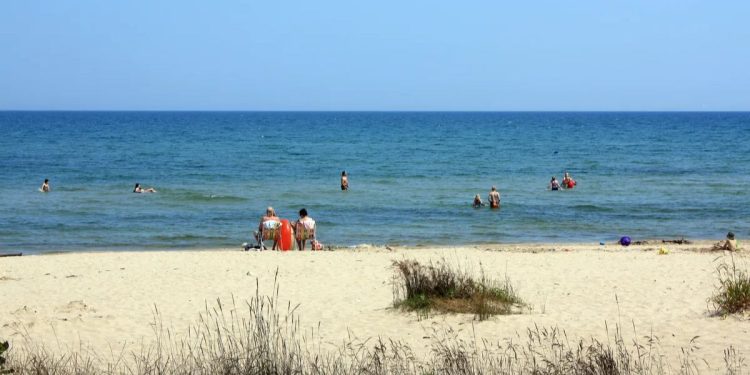A meteotsunami hit two Michigan beaches as severe weather pummeled Lake Michigan on Tuesday.
A meteorologist from the National Weather Service office in Grand Rapids, Michigan, verified to FOX News that a “minor” tsunami struck beaches near Ludington and Holland.
The unusual extreme weather event occurred early in the morning, causing a 2-foot rise in water on the beach.
A webcam in Holland State Park filmed the entire Meteotsunami in timelapse. The camera’s primary function, according to the city, is to display current weather conditions and alert tourists to high-risk water situations.
Scientists are beginning to understand meteotsunamis, which are enormous waves, according to NOAA. Air pressure changes, often linked to fast-moving meteorological events like heavy thunderstorms, cause meteotsunamis, unlike earthquake-generated tsunamis.
Meteotsunamis can reach heights of 6 feet or more in numerous areas across the world, despite often being smaller and less harmful than conventional tsunamis.
The Gulf of Mexico, the Atlantic coast, the Mediterranean, and the Adriatic seas all contain them in addition to the Great Lakes.










